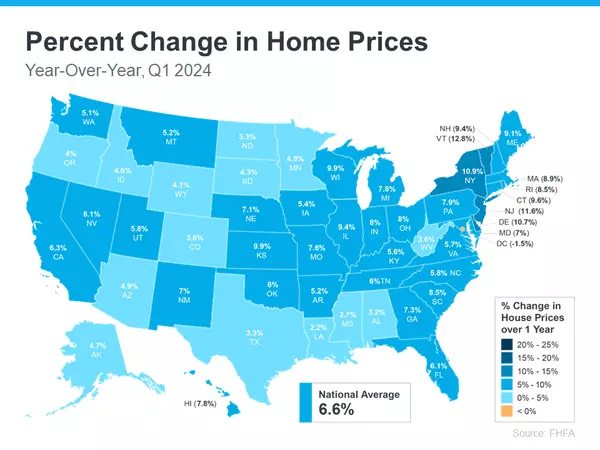Government Shutdown: A Military Spouse's Perspective on its Impact on the Real Estate Market

 Well friends, we dodged a bullet - the threats of another government shut-down were averted when President Biden signed the bill to keep our government funded through Nov. 17. The specter of a government shutdown looms large over the United States every time political battles over budgets and policies play out in Washington. For military families, these shutdowns can bring a unique set of challenges and anxieties, often having repercussions that ripple into unexpected areas of life. One such area is the real estate market, where the uncertainty and instability resulting from a government shutdown can have profound effects.
Well friends, we dodged a bullet - the threats of another government shut-down were averted when President Biden signed the bill to keep our government funded through Nov. 17. The specter of a government shutdown looms large over the United States every time political battles over budgets and policies play out in Washington. For military families, these shutdowns can bring a unique set of challenges and anxieties, often having repercussions that ripple into unexpected areas of life. One such area is the real estate market, where the uncertainty and instability resulting from a government shutdown can have profound effects.A Historical Perspective
The most recent government shutdown, which occurred from December 21, 2018, to January 25, 2019, was particularly striking. It not only became the longest shutdown in U.S. history but also left hundreds of thousands of federal employees, including members of the military, in a precarious financial situation. Many were either furloughed or forced to work without pay during this period, a situation that had far-reaching consequences for military families.
Military Families and Homeownership
Military families often experience a unique set of challenges when it comes to homeownership. Frequent relocations, known as Permanent Change of Station (PCS) moves, are a part of life for military personnel and their families. These transitions necessitate a great deal of flexibility, especially in the housing market.
During a government shutdown, the processes surrounding these moves can be disrupted. For instance, the uncertainty regarding when government employees will receive their paychecks can make military families hesitant to enter the real estate market. The prospect of missing mortgage payments or facing financial instability during a PCS move can be a significant deterrent.
The Impact on the Real Estate Market
Government shutdowns, particularly prolonged ones, inject uncertainty into the real estate market. This uncertainty can manifest in various ways:
- Reduced Buyer Confidence:
Prospective homebuyers, including military families, may delay or cancel their plans to purchase a home. The fear of economic instability and job security during a shutdown can lead to hesitancy in making significant financial commitments.
- Delayed Transactions:
The shutdown affects critical government agencies like the Federal Housing Administration (FHA) and the Department of Veterans Affairs (VA), which play essential roles in facilitating home purchases for many military families. Delays in loan approvals and housing-related paperwork can disrupt the flow of transactions.
- Economic Impact:
Local real estate markets near military bases can experience a slowdown in activity during a government shutdown. Reduced home sales and hesitancy among potential buyers can lead to a temporary economic downturn in these communities.
A Temporary Reprieve
It's worth noting that government shutdowns are not inevitable disasters. In the face of political deadlock, the government must pass legislation to fund its operations. As of late Saturday night, President Biden signed a bill to keep the government funded through November 17, 2023. This measure offers temporary relief and ensures that federal employees, including military personnel, can continue their work without the threat of another immediate shutdown.
However, the potential for future budget disputes remains, and military families must remain vigilant about how these political developments might affect their housing decisions. Government shutdowns, like the one experienced in late 2018 and early 2019, underscore the interconnectedness of government operations and the real estate market. For military families, who already face unique challenges associated with homeownership, the uncertainty surrounding shutdowns can exacerbate anxieties.
As the nation navigates these challenges, military spouses, service members, and real estate professionals must remain adaptable and informed. While government shutdowns may be a part of political life, proactive financial planning and awareness of their potential impact on the real estate market can help military families weather the storms of uncertainty. Beyond the military lifestyle, a military spouse realtor is well-versed in the intricacies of the economy and the housing market. They possess a keen understanding of how broader economic trends and market fluctuations can impact real estate decisions. This dual expertise allows them to offer nuanced advice that takes into account both the immediate needs of military families and the long-term considerations in a dynamic housing market.
So, what if the government DID shut down?
In the event of a government shutdown, VA Loan borrowers may encounter certain challenges and delays in their homebuying process. Here's a breakdown of potential impacts:
-
Loan Approvals and Processing:
- Prior Approvals: Loans requiring prior approvals from the Department of Veterans Affairs (VA), such as manual underwrites, may face eligibility issues during a government shutdown.
- Verification of Benefits (VOB) and Certificate of Eligibility (COE): The processing of VOB and COE, especially if requiring manual handling, may experience delays. This could potentially affect the borrower's closing timeline.
-
Delays in Loan Closings:
- Closing Timelines: VA borrowers may experience delays in closing timelines, particularly if their loan involves manual processes that are directly impacted by the shutdown.
- Unique Circumstances: Functions that can't be system-generated due to unique circumstances may further contribute to postponing closings.
-
Financial Verification Challenges:
- Verification of Employment (VOE): If a VA borrower is a government employee on furlough, obtaining a Verification of Employment may pose challenges during a government shutdown.
It's crucial for VA Loan borrowers to stay in close communication with their lenders and real estate professionals during a potential government shutdown. Lenders may need to navigate manual processes, and borrowers should be prepared for the possibility of extended timelines. Additionally, if the shutdown persists, it's advisable for borrowers to stay informed about any contingency plans or alternative solutions that may be implemented by the VA to mitigate the impact on VA Loan processes.
Should you ever find yourself inquisitive or requiring additional information, please feel free to reach out. Even if you're not in Colorado, I can connect you with a proficient team of professionals equipped to assist you in navigating your specific situation. While we're fortunate that the government shutdown has been averted, the reality is that we frequently confront these potential threats. Therefore, having a well-thought-out plan and a reliable support team at your disposal is absolutely crucial. Your peace of mind is my priority, and I'm here to ensure you have the information and resources you need to navigate any challenges that may arise.Categories
Recent Posts









